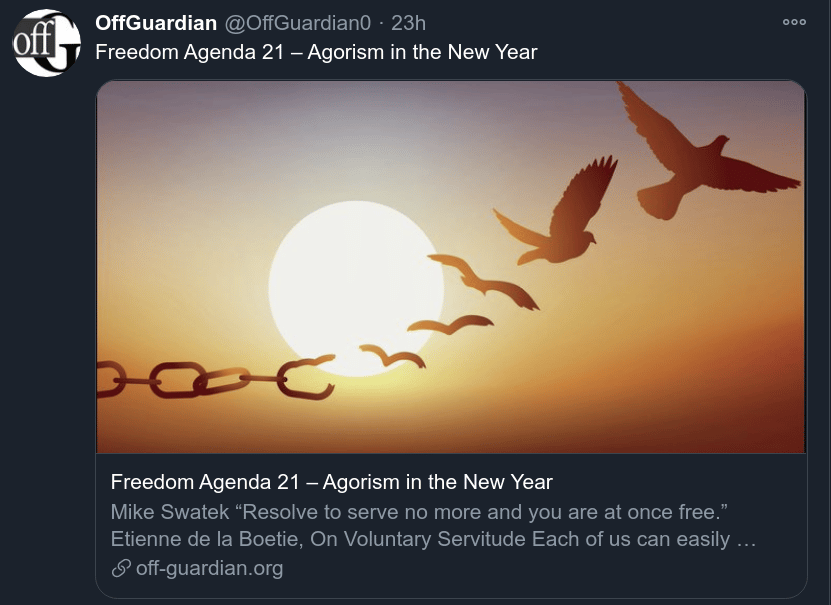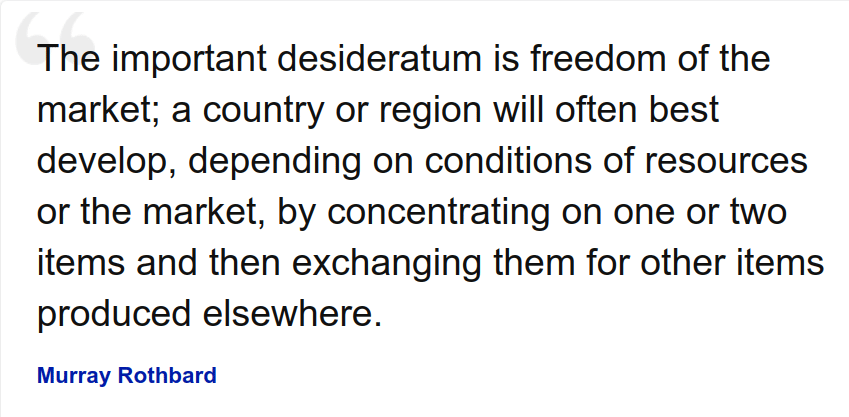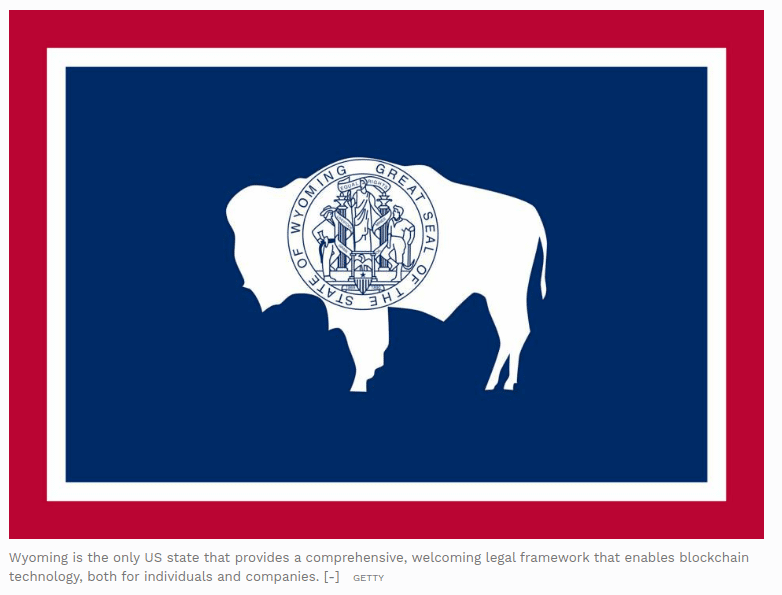My New Years resolution – be more agorist
Mike Swatek at Off-Guardian
 Each of us can easily expand our fight for individual freedom in the new year. You can do many of the things shared below. In a nutshell, this includes anything, big or small, which weakens the state, its crony corporations or its global financial power-mad masters, altogether herein called, “the beast”.
Each of us can easily expand our fight for individual freedom in the new year. You can do many of the things shared below. In a nutshell, this includes anything, big or small, which weakens the state, its crony corporations or its global financial power-mad masters, altogether herein called, “the beast”.
If we all resolve to do this, we will become freer, especially in our own lives.
Whenever you buy or sell something, first consider doing so in the real free-market, also known as the Agora. Every time you avoid feeding or obeying the beast, without harming any individual, you’re an agorist. Going forward, let’s all do much more for our freedom, in as many of the ways described below as possible, and beyond.
More at Off-Guardian


 Tommy Raskin, former intern for Antiwar.com and a
Tommy Raskin, former intern for Antiwar.com and a 










